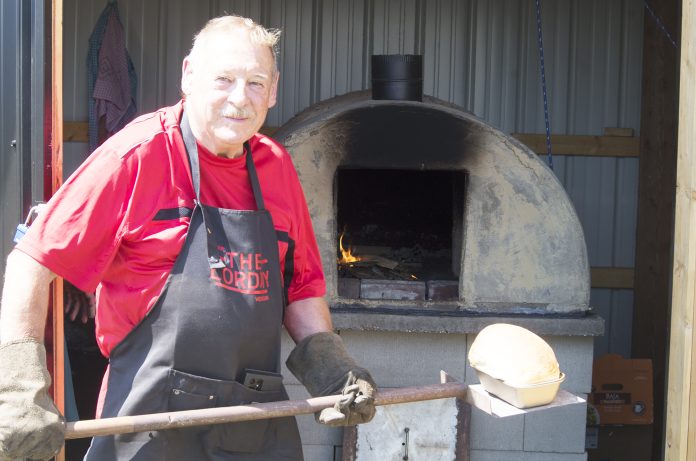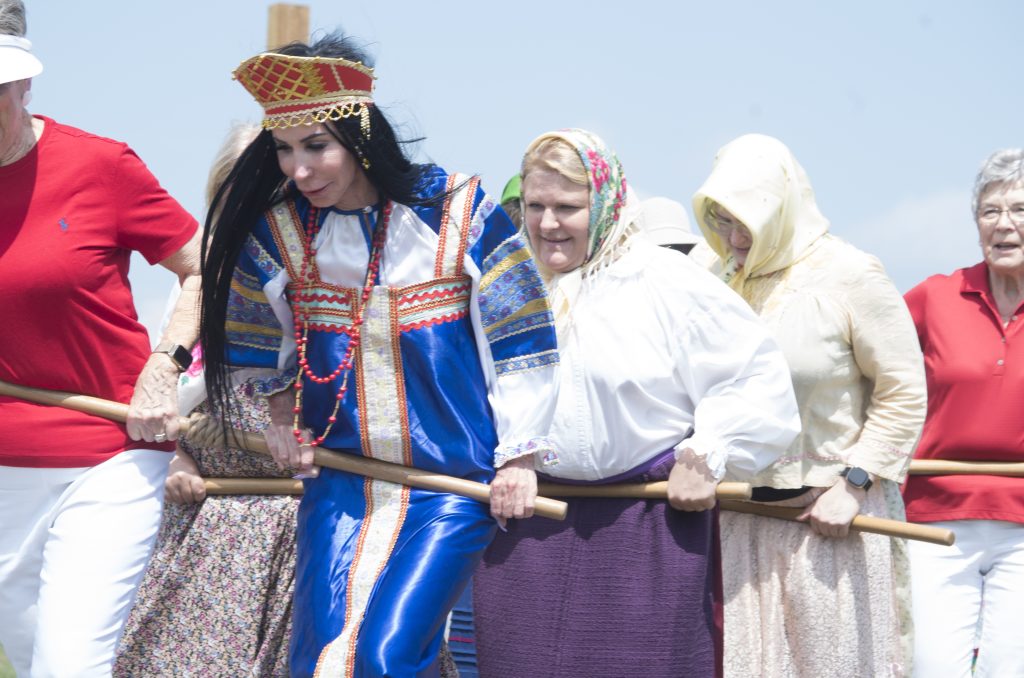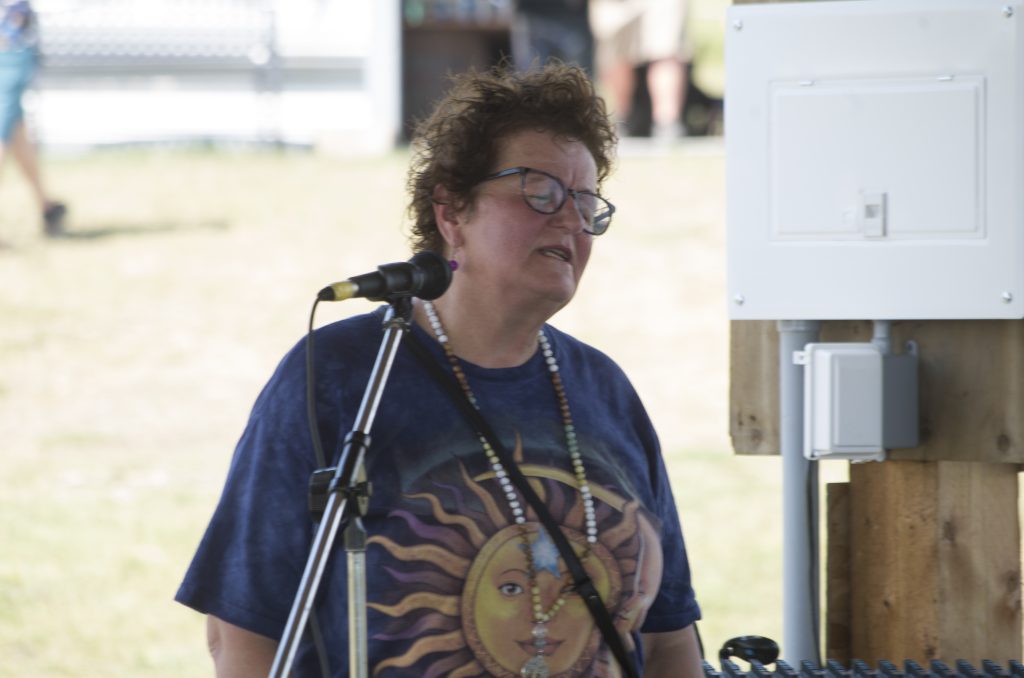
Jeanette Stringer doesn’t doubt the strength of her ancestors.
Even before she volunteered to help pull a plow in near 40 C temperatures, Stringer had plenty of respect for the men and women who came before her. Helping out with a demonstration at the Doukhobor Dugout House National Historic Site on Canada Day has only strengthened her conviction.
“I can’t fathom having to plow a garden from the prairie sod by hand, but the ancestors … they were just cut from a different cloth,” said Stringer, who serves as an elder at the Doukhobor Prayer Home in Saskatoon. “They had determination and they left because they were being persecuted and they wanted to build a life for themselves in Canada, and so they did.”
Stringer is a descendant of the roughly 7,600 Doukhobors who landed in Halifax in 1899 after fleeing persecution in their native Russia. On Canada Day, she and others of Doukhobor descent were at the heritage site east of Blaine Lake to re-enact the pulling of the plow, an important story in Doukhobor History.
Although Stringer’s Doukhobor ancestors settled in Langham, Sask., and not the Blaine Lake area, she said the story is one everyone should know and remember. She’s also happy for the chance to celebrate and preserve Doukhobor culture.
“I believe that we’re living in a time where people are kind of scattered, and I like my heritage because it grounds me,” she explained. “They called the Doukhobors, which translated into English is ‘spirit wrestlers’. Well, as we’re living our life, we’re always wrestling with the spirit of life. We’re always encountering things that we’re not happy with, and things that are good, so we’re always wrestling to be a better person and a more loving, kind, person, and I think right now in our world, we need that. We need our feet planted firmly on the ground.”

The plow re-enactment tells a familiar story that residents of Doukhobor descent hope to keep alive. When they arrived in Saskatchewan, the Doukhobors had no money, so many of the men left for Winnipeg to work on the railroad. The women and children who stayed behind in Saskatchewan tried to plow the fields in the spring, but were hindered because they didn’t have horses.
In the Blaine Lake area, a member of the Muskeg Lake Cree Nation left his reserve and brought the Doukhobor women a horse when he saw them plowing the field without one.
Descendants of those early Doukhobor settlers, like Dustin Popoff, said it’s important to remember that spirit of cooperation.
“It wasn’t always about war or anything. It was mutual understanding,” Popoff said.
“It shows the world that we’re meant for love (and) peace. There’s always happiness and joy. It’s not about what culture can do this and what culture can’t. No matter what background they are, can they join together and be loving and appreciative? That’s more what I think it’s about.”
Popoff grew up in the Blaine Lake area, and on Canada Day he helped hold the plow when groups of women volunteered to pull it as part of the re-enactment. He said the experience gives him a new appreciation for what the first Doukhobors had to go through, female members in particular.
“I believe it’s—a lot of it—about respect,” he said.
“They did a lot of work. Without them, we wouldn’t have been able to come together as a traditional unit and keep the culture going.”
Representatives from a variety of cultural groups were on hand for the Dugout House official summer opening on Canada Day. The list included residents descended from Ukrainian, Russian peasant, Polish, and other cultural groups.

Harvey Kazakoff, a volunteer running the site’s clay oven, said it’s important to show that people from different cultures can cooperate.
Kazakoff had Doukhobor ancestors on both sides of his family, but they all hail from eastern Saskatchewan near the Manitoba border. He said Indigenous people in that area allowed Doukhobor settlers to live with them until they could build houses of their own.
“There was cooperation between the Doukhobors and the natives right from day one,” he said.
Kazakoff said it’s important to highlight that cooperation, and remember that people from every nationality have challenges to overcome. He thinks younger generations today are in danger of forgetting what their ancestors lived through. Events like the Doukhobor Dugout House re-enactment help keep those memories alive.
“They had no stoves. There was no electricity, so you made a clay over and you baked your baking in this,” he said.
“All the young people forgot the problems people went through when they came and settled here. They settled here in the middle of winter time, December, and a lot of the young generation think there were houses here and everything.”

